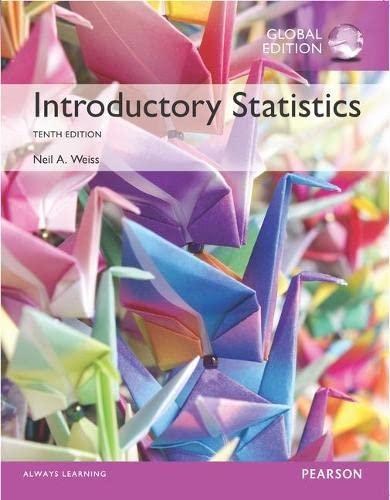Gender and Direction. In the paper The Relation of Sex and Sense of Direction to Spatial Orientation
Question:
Gender and Direction. In the paper “The Relation of Sex and Sense of Direction to Spatial Orientation in an Unfamiliar Environment” (Journal of Environmental Psychology, Vol. 20, pp. 17–28), J. Sholl et al. published the results of examining the sense of direction of 30 male and 30 female students. After being taken to an unfamiliar wooded park, the students were given a number of spatial orientation tests, including pointing to south, which tested their absolute frame of reference. To point south, the students moved a pointer attached to a 360◦ protractor. The absolute pointing errors, in degrees, for students who rated themselves with a good sense of direction (GSOD) and those who rated themselves with a poor sense of direction (PSOD) are provided on the WeissStats site.
Can you reasonably apply the two-standard-deviations F-test to compare the variation in pointing errors between people who rate themselves with a good sense of direction and those who rate themselves with a poor sense of direction? Explain your answer.
Step by Step Answer:






